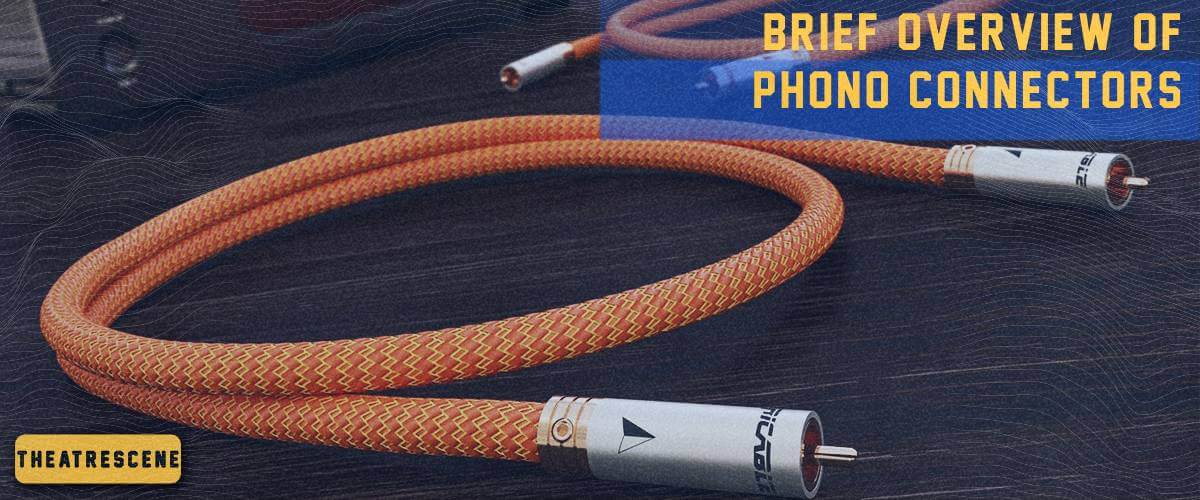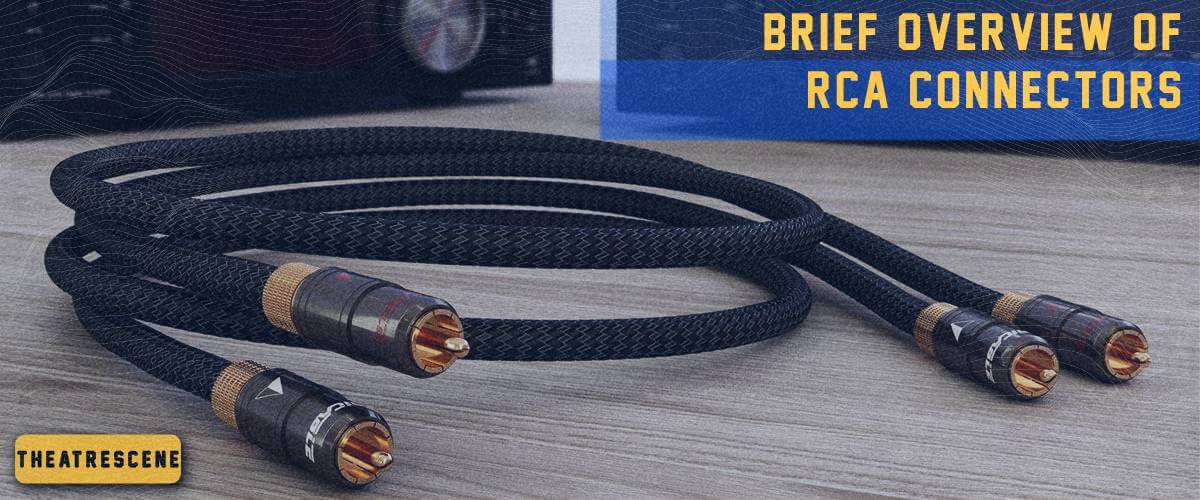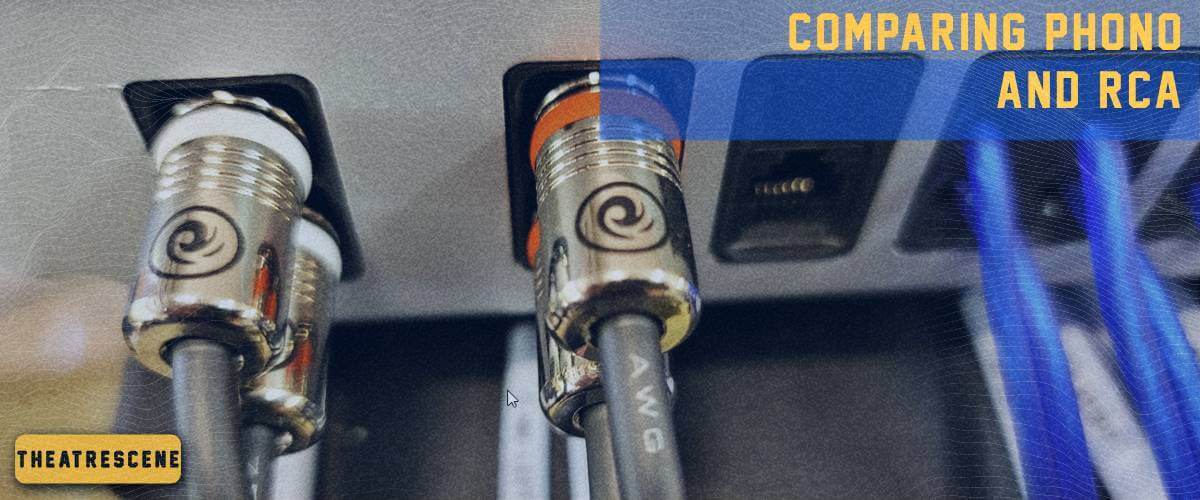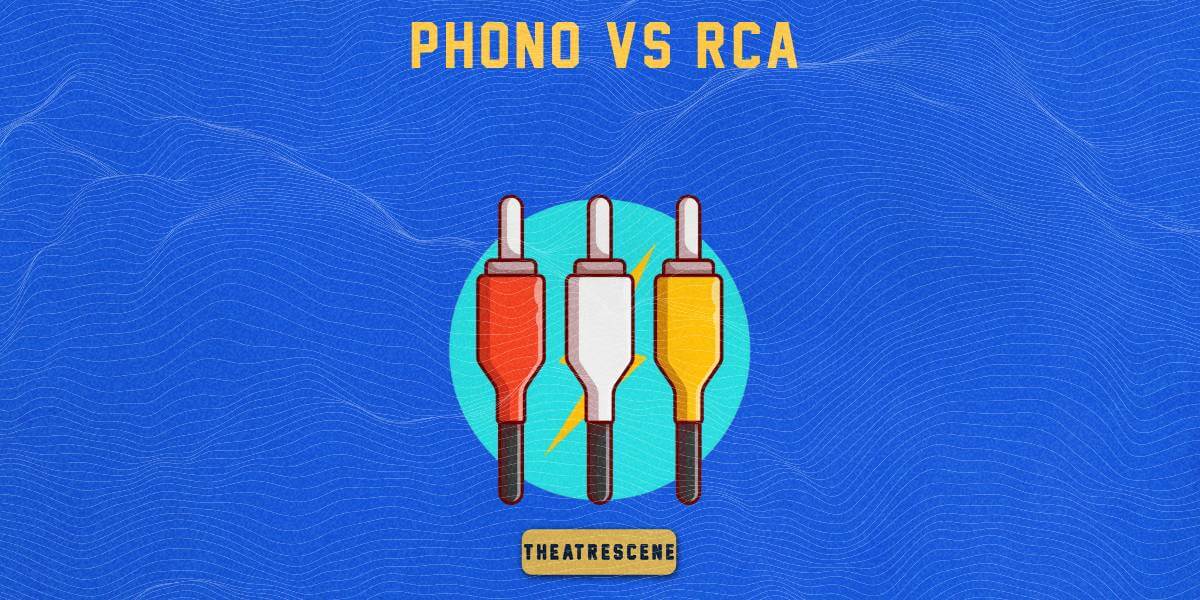The choice of audio connectors can significantly impact the quality of your listening experience, so when choosing between them, knowing the difference between phono and RCA is crucial. Phonics and RCA transmitters are often used interchangeably but have distinctive characteristics. Meanwhile, the term “RCA connector” is universal and refers to a type of electrical connector that is commonly used in the audio and video industry; the term “phono” specifically refers to a type of RCA connector used for analog audio signals, especially in the context of turntables and vinyl record players. Let’s get deeper into their characteristics, advantages, and disadvantages so that you can better understand this subject area.
Brief overview of Phono connectors

Phono connectors are specifically designed for the delicate process of translating the grooves on vinyl records into an audible sound, preserving the nuances of the original recording and sound quality. I want to draw your attention to the advantages and disadvantages of this type of connector so that it can help you make informed decisions based on specific audio requirements:
Pros of phono connectors
- Those connectors can transmit low-level phono signals with remarkable precision, preserving the quality of an original audio recording.
- Color-coded plugs on devices (red for the right channel, white or black for the left channel) facilitate easy identification of channels in stereo setups.
- Phono connectors are often equipped with RIAA equalization that adjusts the balance of bass and treble frequencies in audio recordings for faithful replay.
Cons
- They’re mainly built for analog audio, so if you’re dealing with digital sources, that might not be the best fit.
- As I said, these connectors are closely related to turntables. Accordingly, this might limit their use.
- If the grounding isn’t done right, you might encounter ground hum problems, affecting the overall sound quality.
Brief overview of RCA connectors

RCA connectors are widely used in home audio and video systems, connecting devices such as DVD players, gaming consoles, audio receivers, and televisions. Let’s also delve into their pros, cons, and specific applications in more detail.
Pros of RCA connectors
- RCA connectors are relatively inexpensive, making them a budget-friendly option for manufacturers and consumers.
- Actually, RCA cables handle analog signals well, and analog signal transmission is sufficient when it comes to certain applications, such as stereo audio connections.
- Many older and some modern audio and video equipment feature RCA inputs and outputs, making RCA connectors widely compatible with a variety of devices.
Cons
- RCA connectors are designed for only one-way signal transmission.
- Compared to digital interfaces, RCA devices may offer lower signal quality, particularly over long cable runs.
- RCA cables are analog, which can lead to signal degradation and affect audio or video quality in case of interference.
Comparing Phono and RCA

| Parameter | Phono connectors | RCA connectors |
|---|---|---|
| Noise rejection and interference | Good noise rejection, low susceptibility to interference. | Moderate noise rejection, more susceptible to interference. |
| Durability and ease of use | Generally sturdy but requires careful handling. | Robust plugs, easy to handle, less delicate. |
| Compatibility with components | Mainly used in turntables for vinyl records. | Versatile, widely used in various audio and video equipment. |
| Cost considerations | Phono cables can be more expensive due to specialized use. | Generally more affordable, making them cost-effective. |
Summary: When to choose phono or RCA
In conclusion, you should choose phono connectors when dealing specifically with turntables, as they offer excellent noise rejection, which is crucial for preserving audio quality. In addition, I recommend investing in high-quality cables to ensure optimal signal transmission from the turntable.
If you are seeking universal audio and video applications, opt for RCA connectors, as these transmitters are suitable for a wide range of devices and environments. Also, consider organizing and securing cables properly to minimize interference and enhance overall system performance for RCA connectors.






